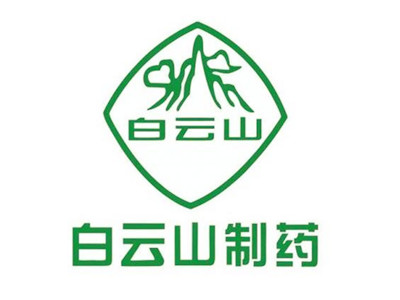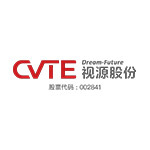XPENG(09868)
Search documents
小鹏汽车:已就AI生成低俗色情视频报警
Bei Jing Ri Bao Ke Hu Duan· 2025-11-28 16:05
Core Points - The company has reported malicious activities on social media involving the use of AI-generated fake explicit videos that defame the brand and its products [1] - The company emphasizes that it did not invite any models or performers to its exhibition and opposes the use of inappropriate content for promotion [1] - The company has collected evidence and reported the incidents to law enforcement, which has initiated an investigation [1]
广东各界捐款捐物驰援香港火灾救援




Zhong Guo Xin Wen Wang· 2025-11-28 08:54
Group 1 - Guangdong Red Cross Society and nine other Red Cross organizations in the Greater Bay Area donated 1.68 million RMB to the Hong Kong Red Cross for emergency rescue and humanitarian assistance following the fire in Tai Po, Hong Kong [1] - Several companies and individuals from Guangdong have contributed to the fire rescue efforts, including Guangzhou Pharmaceutical's Baiyunshan, which donated 5 million HKD in cash and materials for post-disaster assistance [1] - Heytea announced a donation of 5 million HKD to support disaster relief, resettlement, and reconstruction efforts for affected residents [1] - XPeng Motors also pledged 5 million HKD to aid families impacted by the fire [1] - Chimelong Group donated 10 million RMB for emergency rescue and transitional housing for affected individuals, as well as community recovery efforts [1] - Shizhuang Co. contributed 2 million RMB for emergency rescue and transitional housing, supporting community recovery [1] Group 2 - Liang Guanjun, Vice President of the Chinese Overseas Friendship Association and Chairman of Guangzhou Software College, donated 1 million RMB for emergency rescue, living assistance, and post-disaster reconstruction for the affected residents [2] - Liang expressed hope that this donation would inspire more overseas Chinese to contribute, creating a strong positive energy to provide substantial help and warmth to the affected Hong Kong residents [2]
小鹏汽车-W(09868):港股公司信息更新报告:亏损进一步收窄,迈向物理世界AI领导者
KAIYUAN SECURITIES· 2025-11-28 08:41
Investment Rating - The investment rating for the company is "Buy" (maintained) [1][11]. Core Insights - The company has shown a significant improvement in its financial performance, with a narrowing of losses and a strong outlook for future profitability, particularly with the upcoming product launches and collaborations [4][6]. - The company is transitioning towards becoming a leader in physical world AI, with plans to introduce multiple new vehicle models and advanced technologies in the coming years [6][7]. Financial Performance Summary - In Q3 2025, the company achieved a revenue of 20.38 billion yuan, representing a year-on-year increase of 101.8% and a quarter-on-quarter increase of 11.5%. The gross margin was 20.1%, with a net loss of 380 million yuan, and an adjusted net loss of 150 million yuan, with expectations of profitability in Q4 2025 [4][5]. - The company expects Q4 2025 revenue to be between 21.5 billion and 23 billion yuan, a year-on-year increase of 33.5% to 42.8%, with vehicle deliveries projected between 125,000 and 132,000 units [6]. Revenue and Profit Forecast - Revenue projections for 2025-2027 are as follows: 77.54 billion yuan in 2025, 129.36 billion yuan in 2026, and 161.17 billion yuan in 2027, with corresponding Non-GAAP net profits expected to be -394 million yuan, 2.51 billion yuan, and 5.11 billion yuan respectively [4][7]. - The company’s price-to-sales (P/S) ratios for 2025, 2026, and 2027 are projected to be 1.9, 1.1, and 0.9 respectively, while the price-to-earnings (P/E) ratios for 2026 and 2027 are expected to be 57.4 and 28.2 respectively [4][7].
多家企业驰援香港大埔火灾救援,捐款捐物总额超6亿港元
Xin Lang Cai Jing· 2025-11-28 02:02
Group 1: Incident Overview - A major fire occurred in Hong Kong's Tai Po district, resulting in 94 fatalities, including one firefighter, and 76 injuries, with 11 being firefighters [1] - The Hong Kong government established a relief fund with an initial allocation of 300 million HKD to assist affected residents [1] Group 2: Corporate Donations - Alibaba Group announced a donation of 20 million HKD for immediate relief efforts and additional support for affected families [2] - Tencent Charity Foundation pledged a total of 30 million HKD, including an initial 10 million HKD and an additional 20 million HKD to the relief fund [2] - ByteDance (Hong Kong) and Baidu each committed 10 million HKD for emergency relief and community recovery efforts [2] Group 3: Additional Corporate Contributions - Various companies, including NetEase, Xiaomi, and Kuaishou, each donated 10 million HKD to support emergency relief and community recovery [3] - Anta Group and Bosideng Group each contributed 30 million HKD, while Li Ning Group and Xtep Group donated 20 million HKD each for disaster relief [4][5][6] - Other companies like 361°, Chow Tai Fook, and Nongfu Spring also made significant contributions, totaling millions in cash and supplies [7][8] Group 4: Broader Industry Response - Multiple sectors, including automotive, real estate, and finance, participated in the relief efforts, with companies like Chery Automobile and BYD each donating 10 million HKD [9][10] - Financial institutions and logistics companies, such as Didi and SF Express, also pledged substantial amounts for emergency aid and recovery efforts [15]
小鹏汽车:管理层调研-2026 年车型管线充足,量产可见性提升,新兴业务可期;给予 “买入” 评级
2025-12-01 00:49
Summary of XPeng Inc. (XPEV) Conference Call Company Overview - **Company**: XPeng Inc. (XPEV) - **Industry**: Electric Vehicles (EV) and Intelligent Driving Key Insights 1. **Strong Order Expectations**: XPeng anticipates strong orders to counter industry challenges in 2026, driven by the X9 EREV and new model launches in 1Q26 and 2Q26 and beyond [1][5][7] 2. **Volume Production Initiatives**: The company is set to begin volume production of new models, which is crucial for real-world applications and technology advancement [2][5] 3. **Revenue Growth Projections**: XPeng projects a 27% year-over-year revenue growth in 2026, fueled by new model launches including the X9 EREV and several other models [2][5] 4. **Operating Profit Break-even**: The company expects to achieve non-GAAP operating profit break-even by 4Q25E [2] 5. **Robotaxi Development**: XPeng aims to obtain a license for Robotaxi trial operations in 2H26, starting with an in-house fleet in Guangzhou [7] 6. **Humanoid Robots Production**: The company targets production of several hundred humanoid robots next year, leveraging synergies between vehicle and robotics technology [7] 7. **Overseas Expansion Plans**: XPeng plans to establish 300 stores in 60 countries by the end of 2025, with localized production in Indonesia and Austria [7] 8. **Collaboration with Volkswagen**: The partnership with Volkswagen has generated over RMB 1 billion in service revenue, with expectations for continued revenue growth in 2026 [7] Additional Important Points 1. **Competitive Advantages**: XPeng's strengths include large data sets from its NEV fleet, in-house design and production capabilities, and technology synergies across different business lines [2] 2. **Model Launch Timeline**: The company plans to launch four new models in 2Q26, including a large 6-seat SUV and two Mona SUVs [5][7] 3. **Technological Advancements**: XPeng is transitioning to AI model-driven autonomous driving, moving away from rule-based models, and has no reliance on HD maps [7] 4. **Financial Metrics**: XPeng's market cap is approximately $20.1 billion, with projected revenues of RMB 40.87 billion in 2025 and RMB 107.54 billion in 2026 [9] Risks and Considerations - **Price Target Risks**: Risks include lower-than-expected sales volume, increased price competition, and weaker market demand [8]
小鹏汽车-W(9868.HK):Q3总毛利继续提升 AI业务及全球化战略提速
Ge Long Hui· 2025-11-27 20:04
Core Insights - Xiaopeng Motors reported Q3 2025 revenue of 20.38 billion, a year-on-year increase of 101.8%, with a gross margin of 20.1%, up 4.8 percentage points, and a net loss of 380 million [1][2] - The company launched its second-generation VLA model on November 5, which introduces a "physical world model" for smart driving applications across multiple scenarios [1] - Xiaopeng aims to achieve mass production of advanced humanoid robots by the end of 2026, with significant progress in its global strategy, including local production in Europe [2] Financial Performance - Q3 vehicle revenue reached 18.05 billion, a year-on-year increase of 105%, with a gross margin of 13.1% [1] - The service and other profit margin was 74.6%, showing growth both year-on-year and quarter-on-quarter, primarily due to revenue from technology research and development services [1] - For Q4, the company projects delivery volumes of 125,000 to 132,000 units, a year-on-year increase of 37% to 44%, and total revenue of 21.5 to 23 billion, a year-on-year increase of 34% to 43% [2] Strategic Developments - The second-generation VLA model will be co-created with pioneer users by the end of December 2025 and will be fully pushed to the Xiaopeng Ultra model in Q1 2026 [1] - The new IRON humanoid robot was unveiled, featuring three Turing AI chips and solid-state batteries, targeting commercial applications such as guiding and shopping [1] - Xiaopeng's overseas deliveries exceeded 29,000 units from January to September 2025, a year-on-year increase of 125%, with local production projects initiated in Indonesia and Austria, and a research center established in Munich, Germany [2] Future Outlook - Revenue forecasts for 2025, 2026, and 2027 are projected at 79 billion, 133.6 billion, and 159.8 billion respectively, with year-on-year growth rates of 93%, 69%, and 20% [2] - The current stock price corresponds to price-to-sales ratios of 1.81, 1.07, and 0.89 for 2025, 2026, and 2027 [2]
支援香港大埔救灾,阿里、滴滴、腾讯、字节、小米、京东等大厂捐款捐物





YOUNG财经 漾财经· 2025-11-27 14:26
Group 1 - Major tech companies including Alibaba, JD.com, Didi, Tencent, ByteDance, and Xiaomi have made significant donations to support disaster relief efforts in Hong Kong following a severe fire incident in Tai Po [2][3][4][5]. - The Ma Yun Public Welfare Foundation donated 30 million HKD to assist affected families and individuals, while Alibaba Group initiated a donation of 20 million HKD for rescue and recovery efforts [2]. - Didi contributed 10 million HKD for emergency rescue and humanitarian aid, and is actively coordinating with local authorities to ensure public safety during the crisis [2][5]. Group 2 - Tencent Charity Foundation announced an initial donation of 10 million HKD for urgent relief, transitional housing, and emotional support for affected residents [2][5]. - Lenovo Hong Kong also donated 10 million HKD to support emergency rescue, medical assistance, and subsequent recovery efforts for the affected community [4]. - Xiaomi Foundation pledged 10 million HKD for immediate disaster relief, alongside contributions from BYD and NetEase, each donating 10 million HKD, and Anta Group and 361° Group contributing a total of 30 million HKD and 15 million HKD respectively [5]. Group 3 - JD.com quickly mobilized resources, delivering essential supplies such as bottled water and instant noodles to the disaster site, with logistics support from its extensive supply chain network [5]. - Alibaba's logistics arm, Cainiao, is actively dispatching emergency supplies like food and bedding to the affected areas [6].
多家车企驰援香港
Guo Ji Jin Rong Bao· 2025-11-27 13:24
Group 1 - The fire incident in Tai Po, Hong Kong, occurred on November 26, resulting in multiple casualties and prompting a significant response from various sectors [1] - The Hong Kong government has established eight shelter centers and mobilized nearly 200 community care team members to provide necessary support to affected citizens [2] Group 2 - Geely Holding Group, in collaboration with the Li Shufu Public Welfare Foundation, donated 10 million HKD for medical assistance, emergency accommodation, and post-disaster reconstruction [2] - BYD donated 10 million HKD through BYD (Hong Kong) for medical aid, emergency accommodation, and post-disaster rebuilding efforts [4] - Xpeng Motors contributed 5 million HKD to support affected families and pledged to monitor the situation closely [8] - GAC Group donated 6 million HKD for emergency medical assistance, temporary accommodation, and rebuilding efforts, while also preparing support vehicles for disaster response [11] - Chery Automobile Co., Ltd. donated 10 million HKD through the China Red Cross Foundation to assist in rescue and recovery efforts in Tai Po [14]
支援香港大埔救灾,阿里、京东、滴滴、腾讯、联想等大厂捐款捐物
2 1 Shi Ji Jing Ji Bao Dao· 2025-11-27 12:14
Core Points - Major internet companies including Alibaba, JD.com, Didi, Tencent, ByteDance, and Lenovo have made significant donations to support fire relief efforts in Hong Kong following a severe fire incident in Tai Po [1][2][3] Group 1: Donations and Contributions - Alibaba Group has initiated a donation of 20 million HKD for fire relief, including 30 million HKD from the Jack Ma Foundation for affected families [1] - Didi has pledged 10 million HKD for emergency rescue and humanitarian aid, with plans for ongoing support [1] - Tencent Charity Foundation has committed 10 million HKD for urgent relief efforts, including transitional housing and emotional support for affected residents [1] - ByteDance and Lenovo each donated 10 million HKD to assist with emergency rescue and community recovery efforts [1] - Xiaomi Foundation has also contributed 10 million HKD for the fire relief [2] - BYD and NetEase each donated 10 million HKD, while Anta Group and 361° Group collectively contributed 30 million HKD and 15 million HKD respectively [2] Group 2: Logistics and Support - JD.com has mobilized its logistics network to deliver essential supplies such as water and food to the disaster area, with the first batch dispatched on the night of the fire [2] - JD Logistics has activated emergency plans to ensure timely delivery of bedding, hygiene products, and other necessities from its warehouses [2] - Didi's public welfare rescue team is collaborating with local rescue teams to participate in post-disaster support efforts [2] - Alibaba's logistics arm, Cainiao, is coordinating the delivery of food and emergency supplies to the affected areas [3]
支援香港大埔救灾,阿里、京东、滴滴、腾讯、联想等大厂捐款捐物





21世纪经济报道· 2025-11-27 12:07
Group 1 - Major internet companies including Alibaba, JD.com, Didi, Tencent, ByteDance, and Lenovo have made significant donations to support fire relief efforts in Hong Kong following a major fire incident in Tai Po [1][2] - Alibaba Group has initiated a donation of 20 million HKD for disaster relief, while the Ant Group contributed 10 million HKD [1] - Didi and Tencent each donated 10 million HKD for emergency rescue and humanitarian assistance [1] - ByteDance and Lenovo also contributed 10 million HKD each to support urgent relief and community recovery efforts [1] - Xiaomi Foundation announced a donation of 10 million HKD for immediate fire relief [1] Group 2 - Other companies such as BYD and NetEase donated 10 million HKD each, while Anta Group and 361° Group collectively donated 30 million HKD and 15 million HKD respectively [2] - JD.com played a crucial role in logistics, delivering essential supplies like bottled water and instant noodles to the disaster site, with a rapid response team established for ongoing support [2] - Didi's public welfare rescue team is collaborating with local rescue teams to assist in post-disaster recovery efforts [2] - Alibaba's logistics arm, Cainiao, is mobilizing emergency supplies to the affected area [2]



